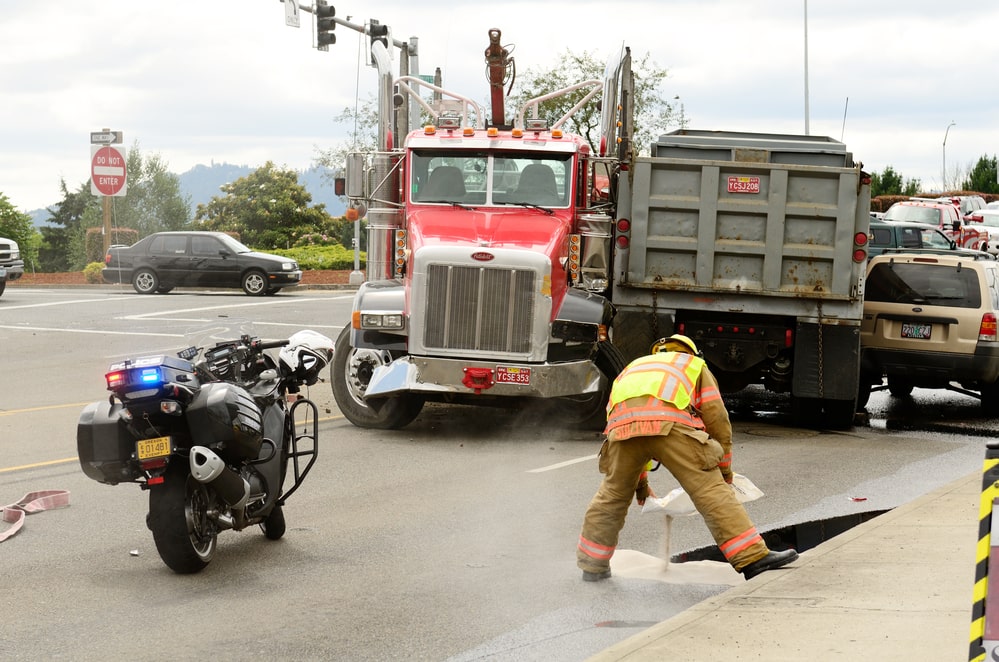BATON ROUGE PERSONAL INJURY LAWYER
Washington Truck Accident Laws
100% Committed To Maximizing Your Recovery
Truck Accident Laws Demystified

Truck accidents are often more complex than regular car accidents due to the size and weight of commercial vehicles. For victims involved in such accidents, understanding Washington Truck Accident Laws is crucial to securing justice and compensation. These laws encompass a variety of regulations designed to ensure truck safety, define liability, and protect the rights of accident victims. Here’s a breakdown of key aspects of these laws and how they apply to truck accident cases in Washington.
What Are Washington Truck Accident Laws?
Washington Truck Accident Laws are a combination of state and federal regulations aimed at minimizing accidents involving large commercial vehicles. These laws cover everything from driver qualifications and truck maintenance to cargo regulations and driving hours. The state adheres to strict rules established by the Federal Motor Carrier Safety Administration (FMCSA), which govern many aspects of trucking operations.
In Washington, victims of truck accidents have legal avenues to seek compensation for their injuries, property damage, and other losses. One of the most important elements to understand in truck accident cases is negligence, which is often the key factor in determining who is liable for the crash.
Key Factors In Washington Truck Accident Laws
Several parties may be held responsible in a truck accident, depending on the circumstances. These can include:
- Truck Drivers: In cases of reckless driving, distracted driving, or driving under the influence, the driver is typically the primary responsible party. Washington’s laws require truck drivers to follow strict hours-of-service rules to avoid fatigue-related accidents.
- Trucking Companies: Employers can be held liable if they fail to maintain their trucks, push drivers beyond legal driving limits, or hire unqualified drivers. Many trucking companies are required by law to carry adequate insurance to cover damages in the event of an accident.
- Cargo Loaders: If cargo is improperly loaded, leading to truck instability or rollover accidents, the loaders may be at fault.
- Truck Manufacturers: In cases where faulty equipment, such as defective brakes or tires, causes a truck accident, the manufacturer of the defective parts may be held liable.
Comparative Negligence Rule
Unlike some states that follow the contributory negligence rule, which can bar a plaintiff from recovering damages if they are even partially at fault, Washington follows a comparative negligence system. This means that if the victim is partially at fault, they can still recover damages, but their compensation will be reduced in proportion to their degree of fault. This provides a fairer opportunity for accident victims to receive compensation even if they contributed in some way to the incident.
What To Do After A Truck Accident
- Call Emergency Services: Report the accident immediately, ensuring that police and medical help are on the way.
- Document the Scene: Take photographs, collect witness statements, and note key details about the truck, including its license plate number and any markings.
- Seek Legal Counsel: Navigating Washington Truck Accident Laws requires expert legal guidance. Attorneys who specialize in handling truck accident claims. Their team can help you determine liability, gather evidence, and fight for fair compensation.
Additional Resources
For more information on truck regulations and safety standards, visit the Washington State Government’s official website. This site provides helpful resources on traffic laws, accident reporting, and other legal matters that may affect truck accident victims.
Take Legal Action
If you’ve been involved in a truck accident in Washington, don’t navigate the complexities of the law alone. Contact Truck Law for a free consultation. Their skilled attorneys are here to help you get the compensation you deserve and hold negligent parties accountable for their actions.